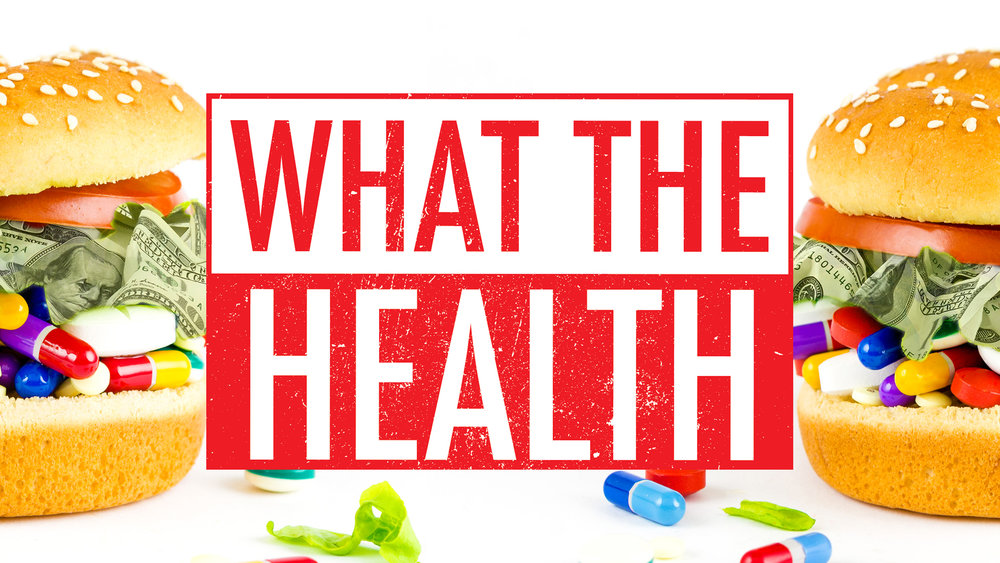When people ask me what I think about this and other diets or food trends, I always start by turning the question around: “What do you think?” This helps me understand what they related to, what they are wrestling with, and what stuck out to them. From this particular documentary, I heard two primary responses. First, they make a convincing argument against animal products and the food industry. Second, people feel lost about what to do with this information.
For those who haven’t seen What the Health, you can watch it on Netflix, or learn more about it here. In short, it follows Kip Anderson as he seeks to expose the corruption that exists in the government and the food industry. He makes the argument that a diet that includes animal protein promotes disease and costs us trillions on healthcare every year. Kip supports a plant-based diet and shares stories of people who are beginning to turn their life around by eliminating animals from their diet.
I take in a documentary about food through two lenses: an eater and a dietitian who teaches people how to eat to support their health. I want to share a few of my key takeaways.
- There is corruption in the food industry. Honestly, I’m sure that statement surprised approximately nobody. There is money in food because we all eat, and where there is money, there is often corruption. Industries fund research that supports their particular food, like calcium promoting bone health. What they don’t mention is that corruption doesn’t stop at the meat and diary industry; it is also prevalent with plant-based industries like corn, soy and wheat.
- It is vitally important to carefully consider how we teach people about food. At the end of the day, our food choices rarely come down to knowledge alone. If it did, we would all joyfully eat lots of fruits and vegetables and maintain a healthy weight. Our food choices are dictated by emotions, availability, time and social influences, to name a few. As someone who carefully considers how to teach people about food and how to make food choices, I struggled with Kip’s delivery. Such strong and overarching statements against a particular food or food group can leave people feeling guilt and shame, often paralyzing us from taking action. I wonder if a more moderate approach would have invoked more change in viewers.
- A plant-based diet can promote health. Plants are incredibly nutritious, and we should all eat more of them! They promote long-term health and can play a role in preventing disease. I have clients and family members who follow a plant-based diet while training for marathons, raising families, and traveling as business executives. I have personally seen someone successfully get off his blood pressure and cholesterol meds by following a plant-based diet.
- A plant-based diet is not the only diet that promotes health. The best diet for you is the diet that you can stick to, that makes your body feel great, that is in line with your values and that helps you achieve your goals. At the end of the film, Kip comments that at this point in his life, he could likely incorporate small amounts of animal products and maintain his health; however, he chooses not to for other social and environmental factors. He has found a diet that works for him, but he seems able to acknowledge that a healthy diet doesn’t have to exclude animal products altogether.
If you’re interested in trying a plant-based diet, go for it! There are clearly health benefits. You might love it and decide to do it for the rest of your life. If you’re frustrated by big business, go local. Meet some farmers and buy their produce, eggs, milk and meat.
We are here for you if you need help! Contact us for a free 15-minute consultation, send us an email, or reach on Facebook or Instagram.
This post was written by Haley Hall.


What To Eat Before & After Your Workouts
Enter your email for FREE access to the exclusive resource.
You have Successfully Subscribed!
100% privacy. No spam.